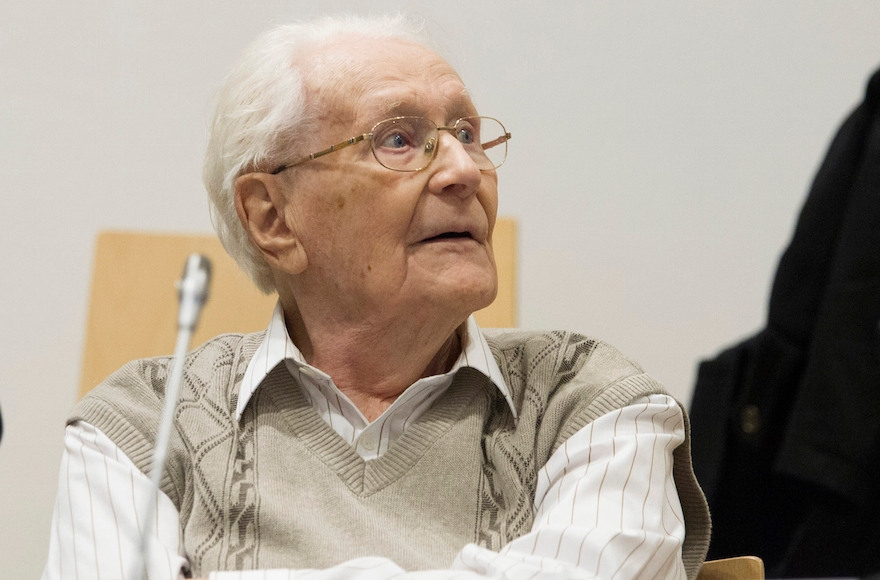BERLIN (JTA) — A 94-year-old former Auschwitz guard was sentenced to four years in prison for his role in the murder of 300,000 Hungarian Jews in the concentration camp.
Former SS member Oskar Groening was sentenced Wednesday in the District Court of Luneburg.
He had admitted to being tasked with gathering the money and valuables found in the baggage of murdered Jews and handing it over to his superiors for transfer to Berlin. Groening said he had guarded luggage on the Auschwitz arrival and selection ramp two or three times in the summer of 1944.
Groening expressed remorse and accepted moral responsibility for his role; he did not ask for leniency.
Welcoming the sentence, World Jewish Congress President Ronald Lauder said in a statement that “there must never be impunity or closure for those who were involved in mass murder and genocide, irrespective of their age.
Efraim Zuroff, chief Nazi hunter for the Simon Wiesenthal Center and director of its Israel office, called the conviction “well deserved” and hoped it would “pave the way for additional prosecutions of individuals who served in death camps and the special mobile killing units (Einsatzgruppen).”
The sentence exceeded the 3 1/2 years of jail time requested by the prosecution, the German news agency dpa reported. The court must determine whether Groening’s health will allow him to serve the time.
During the trial, Groening asked for forgiveness while acknowledging that only the courts could decide when it came to criminal guilt.
Plaintiffs in the case included more than 60 Holocaust survivors and their relatives. Several survivors testified during the trial, which lasted about three months.
Groening was held in a British prison until 1948. He eventually found work as a payroll clerk in a factory.
The first investigations of Groening took place in 1977, but it was only after the successful trial against John Demjanjuk in 2011 that the courts were emboldened to try camp guards on charges of complicity in murder.
Demjanjuk was convicted in a Munich court as an accessory to the murders of nearly 30,000 Jews in the Sobibor death camp in Poland, where he had served as a guard. The case set a precedent in that being a guard at a death camp was sufficient to prove complicity in murder.
JTA has documented Jewish history in real-time for over a century. Keep our journalism strong by joining us in supporting independent, award-winning reporting.






